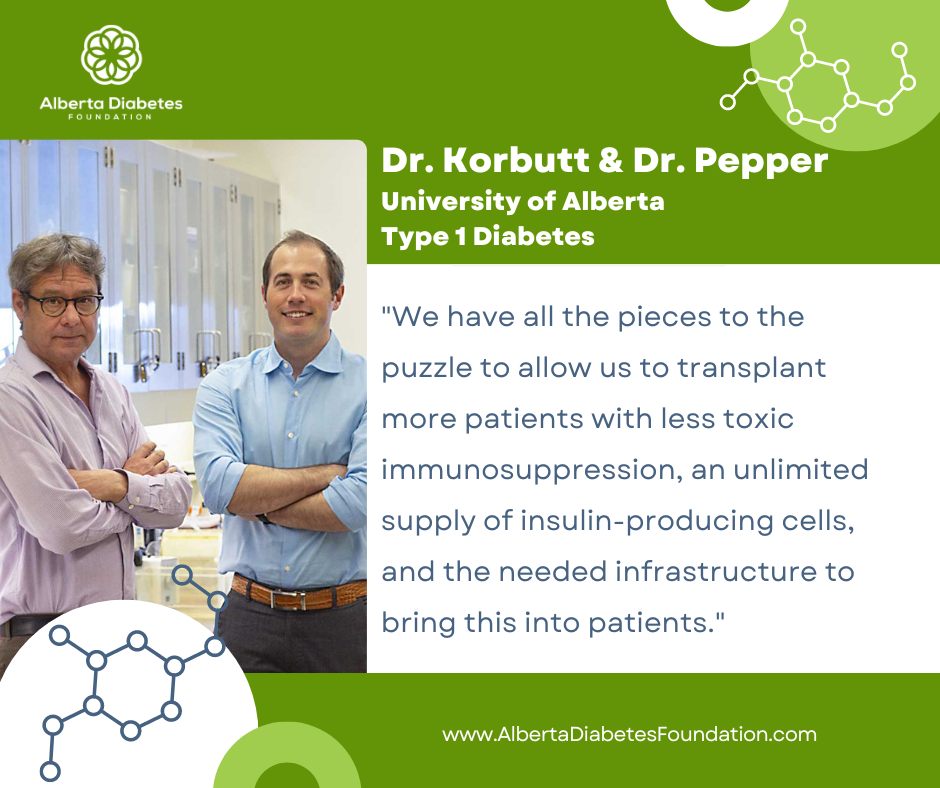Research Updates: Dr. James Shapiro
Dr. James Shapiro's Stem Cell Research

Welcome to Research Updates: News from the World of Diabetes Research. Today we are catching up with Dr. James Shapiro!
Dr. James Shapiro is a professor in the Department of Surgery, Division of General Surgery at the University of Alberta. He keeps busy as a practicing hepatobiliary and pancreatic oncologist and transplantation surgeon while also maintaining his research laboratory.[1] He has won multiple awards, including the Gold Medal in Surgery from the Governor General of Canada. He was recently appointed as the Department of Surgery's first Canada Research Council's Chair in Transplantation Surgery and Regenerative Medicine.[2]
James Shapiro obtained his medical degree from the University of Newcastle upon Tyne and trained in surgery at the University of Bristol. His interest in pancreatic surgery morphed into an interest in diabetes. In 1993, Shapiro came to Edmonton as part of a transplantation fellowship and earned his Ph.D. in Experimental Surgery and transplantation. He would go on to positions in Vancouver; Kyoto, Japan; and Baltimore, Maryland, before being recruited back to the U of A in 1998 to lead and rejuvenate what had become a stalled Clinical Islet Transplant Program. [3] Dr. Shapiro and the team successfully refined the Edmonton Protocol, revolutionizing diabetes treatment. It remains the standard of care for islet transplantations worldwide.
The Research:
Today, Shapiro and his team are further refining the Edmonton Protocol, working to overcome the need for anti-rejection medication post-transplantation, thus making it safer and more accessible. Shapiro is exploring the benefits of using stem cell technology to improve the Edmonton Protocol. Stem cells are precursors to all cells in the body and can be encouraged to develop into any type of cell, including insulin-producing beta cells. Shapiro is testing stem cells acquired from a diabetic patient and engineering them to become beta cells. These cells would not trigger an autoimmune response because they would come directly from the patient, thus eliminating the need for immunosuppressant drugs.
Shapiro reported early success in a first-in-human clinical trial of this stem cell project. This is a huge milestone and proves that stem cell-derived islet therapy is safe and shows signs of efficacy. As he begins larger-scale in-human clinical trials, the coming years will be vital in Shapiro's work.
“I’m very convinced that a cell transplant therapy is definitely in the cards for a cure for diabetes. We’ve had 100 years of insulin, and now we need something better."
If successful, Dr. Shapiro's work will effectively cure diabetes. It will eliminate the need for needles, insulin pumps, and finger pokes. It would be life-changing for countless individuals with diabetes around the world.
Sources:
[1] “Dr. James Shapiro: Profile,” University of Alberta: Faculty of Medicine and Dentistry, https://www.ualberta.ca/medicine/about/people/details.html?n=James-shapiro
[2] sic
[3] History of a Diabetes Breakthrough, University of Alberta Faculty of Medicine and Dentistry, https://www.ualberta.ca/medicine/momentum/2020/momentum-stories-2020/2020/may/history-of-a-diabetes-breakthrough.html
About the Author
Officially, Dana works as ADF's community engagement and marketing coordinator, but unofficially, she is also the resident Type 1; Dana has had diabetes for 22 years and loves to share her experiences with others.
LET'S WORK TOGETHER TO FIND A CURE.
VISIT US
1-020 Li Ka Shing Centre
University of Alberta
Edmonton, AB, T6G 2E1
Office Hours
Monday-Friday 8:30-4:00
If you would like to set up an appointment at our office, please set up an appointment by contacting us at
info@abdiabetes.com










